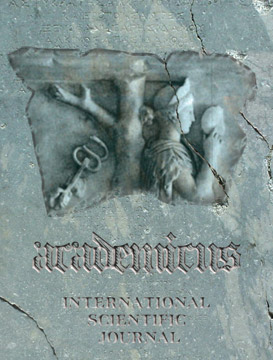Title:
The Functionality and Comparisons of BSC and Alternative Theories in Organisations: Business Perspective
Author(s):
Abstract:
The purpose of this research is to show the comparison of Resource-based view, Human capital, stakeholder as alternative theories and Balanced Scorecards (BSCs). Resource-Based View (RBV) appears to be limited with narrow implications as the strategic roles. RBV is forced on the internal organisation of a firm and it does not consider the external factors like the demand side of the market. A firm or an organisation may have the resources and the capabilities to gain a competitive advantage but still have no demand. RBV is not explicit on how particular market-based assets and capabilities contribute to generating and sustaining specific form of customer values. Accordingly, Human Capital theory (HC) assumes education increases productivity in the organisation, resulting in higher individual wages, but failed to provide adequate insight into the process through which education training are translated into higher wages. High level of educational attainment and quality may not potentially yield greater productivity and wages across the board. In the same vein, stakeholder theory has no learning and growth perspective required in the 21st century business but provides managers with clear mission and facilitates decision making. Balanced Scorecards (BSCs) has four perspectives: Financial, Customer, Internal development and Learning and growth perspective. It sets priorities by identifying, rationalising and aligning initiatives. The broad aim of this study is to shed light on limitations of these theories. The paper intends to identify future research questions that would help to remove fundamental barriers to pave the way to the company-wide performance in Small Medium Enterprises (SMEs): does BSC or alternative theory add significant value to SMEs? If it does add value, how does it enhance the performance of SMEs in emerging economies?
Keywords:
resourced-based view; human capital; stakeholder; balanced scorecards; employees and performance
Full Text PDF:
References:
View complete reference list, click
here
Digital Object Identifier DOI:
The article's content ©Academicus™ The Functionality and Comparisons of BSC and Alternative Theories in Organisations: Business Perspective
by
Dr. (PhD) Benneth C. Nwafor
,
Dr. (PhD) Hosein Piranfar
,
Dr. (PhD) John Aston
is licensed under a Creative Commons
Attribution-NonCommercial 4.0 International License.
Presented:
November 2019
Included for Publishing:
December 2019
Published:
January 2020,
Volume 11,
Issue 21
Academicus International Scientific Journal is an Open Access Journal. This means that all content is freely available without charge to the user or his/her institution. Users are allowed to read, download, print, search, or link to the full texts of the articles in this journal without asking prior permission from the publisher or the author. This is in accordance with the BOAI definition of open access. Users are obliged to cite the source (Academicus International Scientific Journal) and the author, according to the international citation standards.
To learn more about the OA Policy followed by Academicus ISJ, read Journal Regulations
Academicus
International Scientific Journal
pISSN 2079-3715
eISSN 2309-1088
Address:
Sheshi i Flamurit, Rruga Muze
Al-9401 Vlorë, Albania
Tel: +355 68 60 60 555
info@academicus.edu.al
https://academicus.edu.al



 Scholar
Scholar
 Crossref
Crossref
